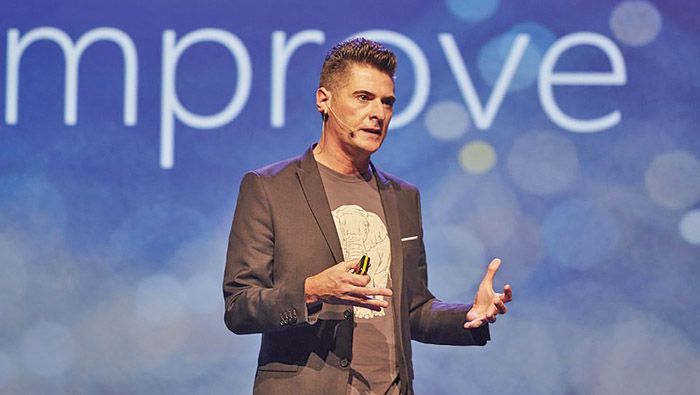
Abu Dhabi: Students in Oman have tremendous talent that can be harnessed for a sustainable economic and social future, according to an executive from computer giant, Microsoft .
Speaking exclusively to Times of Oman at the BETT 2019 conference in Abu Dhabi, Anthony Salcito, Vice President of Education for Microsoft, said that students in Oman already had the mindset to help the country thrive and give back to their communities. All they needed were the opportunities to do so.
He also said that technology had enabled students to gain access to information they couldn’t reach previously, which made them more aware of the challenges they faced and what they needed to do to address them.
“We know that students everywhere, regardless of where they live, have a connection to their community,” he told Times of Oman.
“They want to do good. They have tremendous talent. There is no shortage of talent in Oman. It’s really about opportunity and mindset. Students in Oman have access to global communities. They have access to content and knowledge that wasn’t available to generations before. We know the way in which they think of their positions in the world.”
“If we look at students and their agency in terms of solving problems, giving back to society, it is different,” added Salcito.
“The work place is changing, so if you start with a recognition that how students learn has changed, how they think has changed, their jobs and their mindsets have changed, that’s the foundation. That is the belief that I have, after working in hundreds of countries around the world, that is what I see as an opportunity for change. That is as true in Oman as it is in any other country.”
However, Salcito added that students would not be able to achieve this alone, saying that proper support from teachers and parents was vital for them to progress. For this to happen, it was very important that any concerns they had over technology needed to be addressed, and if necessary, training needed to be made available to them.
“We know parents are concerned about their kids,” he admitted.
“They want their kids to have better lives than they do. That is a universal truth. We start there and build from that. If a parent is against technology, is it because she needs to get trained, or she feels disconnected from her child’s education? Maybe she wants to understand online safety and ensure the child’s identity is protected. We must accept that resistance, not push back on that.”
“One of the growth mindsets to believe is that people who are resistant to change are not the problem, but a great opportunity to change,” said Salcito. “Some might say that there are teachers who are resistant to change, but that’s okay, because they will retire in a few years, but no, that is not the way to think. These teachers are resisting because they are trying to tell you something. They are telling you that you haven’t communicated your vision clearly enough, that you haven’t embraced them as part of your vision, so I love to embrace the people and learn from them.”
He added: “Teachers are concerned about change. Why? Are they concerned about their student’s safety, or their own lack of understanding? Let’s not dismiss their resistance but understand and learn from it. There are many universal truths we all share. We know teachers became teachers because they want to help kids. We must appreciate the fact that there are those who aren’t just jumping in. The early adopters are great, because they embrace the change, but they don’t always give us the insight into how to move forward.”
He was also quick to allay fears that technological advancements might be expensive to adopt, particularly in those countries where finances were a concern. What first needed to be done was develop a proactive mindset to change.
Salcito said: “You need to take the content in the classroom, put it out, and then work collaboratively on projects. These are the dynamics that are in place. All of this can be enhanced by technology, but if you go for technology without all this stuff, then you’re just wasting a lot of money, so you’ve got to spend time putting foundations in place, and then use technology to support and scale. I often feel that what ends up happening is that the countries that spend money on technology spend less time thinking.
“If you spend money on technology, you often don’t do anything, else” he added. “If you say that you will think about changing education once you have money and then buy technology, then it is an opportunity wasted. The opportunity is to think about changing education from the ground up, transforming the way in which you promote culture and mindset shifts, and then, when you have technology, you can develop faster than any other country in the world.”